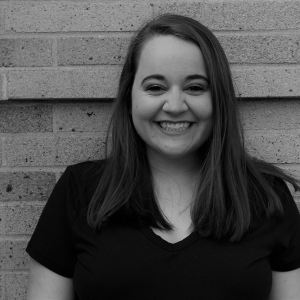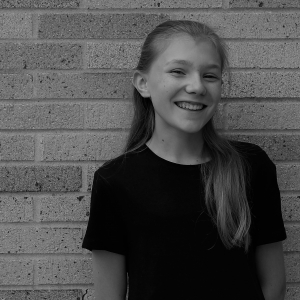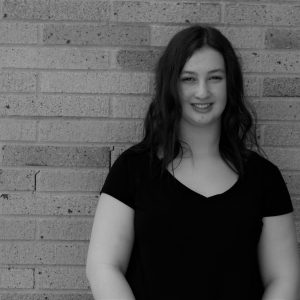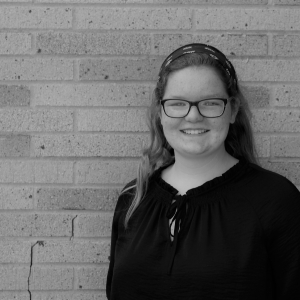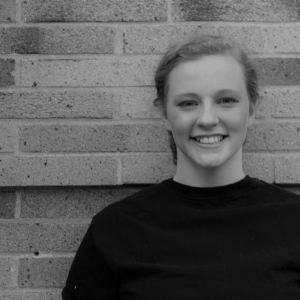
Much Ado About Nothing |
||
|
|
||
|
Greg Bouman & |
William Shakespeare |
Ellie Russo |
|
|
||
|
|
||
| Thank you for joining us for this Student Directed & Produced Production! Please make sure you remain masked and maintain social distancing while on Mercy McAuley's campus! | ||
Follow Us:
Director's Note
Against all evidence to the contrary, I have never been a Shakespeare girl. I read Romeo and Juliet in freshman year honor’s English with Miss Vissing, but aside from being fake-stabbed while acting out the part of Mercutio, his works have never really held any notable meaning to me.
I stumbled upon Much Ado About Nothing, as all good things are stumbled upon, in the YouTube recommended section. I was hooked, and I had to know more. So, I read it, I was shocked to find—I loved it. It was hard to read, yes, but with No Fear Shakespeare by my side, I was immune to Shakespearean English, and I finally learned the difference between “thee” and “thou”. I mentioned it offhand to Ms. Geckle, and thought nothing more of it. Finding out that not only was Mercy McAuley putting on Much Ado, but that it was a student production filled me with unimaginable joy, and I knew what I had to do. I watched all of the different filmed productions, researched the time period I wanted to set it in, made a moodboard—well, maybe that wasn’t strictly necessary, but oh, was it fun—and submitted my application to be the director. It only went up from there.
There is no serious moral to be applied to Much Ado About Nothing. It is, above all else, a story about love and betrayal and stubbornness: friends, family, and enemies getting together for marital shenanigans in 16th century Italy. Hero and Claudio, shy lovers; and their cousin and friend respectively, Beatrice and Benedick, staunch believers in the single life, come together for a party, and the rest is chaotic. In this production, the story happens in a 1920s American speakeasy because of the loose, free-flowing atmosphere—fitting, for a Shakespearean comedy. The transition from wartime to postwar prosperity felt appropriate, as well as the social transition into modern ideas of freedom and expression.
I am so, so proud of this cast and crew for everything they’ve done to make this show a success. It was not an easy road, and Shakespeare is certainly not the easiest to memorize, but they overcame their challenges and did it. This is truly a reflection of the heart and soul of every member of this production, and I am honored to have witnessed it.
Ellie Russo, Director
Read More About Shakespeare's Much Ado About Nothing Here:
https://www.rsc.org.uk/much-ado-about-nothing/synopsishttps://www.shakespeare.org.uk/explore-shakespeare/shakespedia/shakespeares-plays/much-ado-about-nothing/

